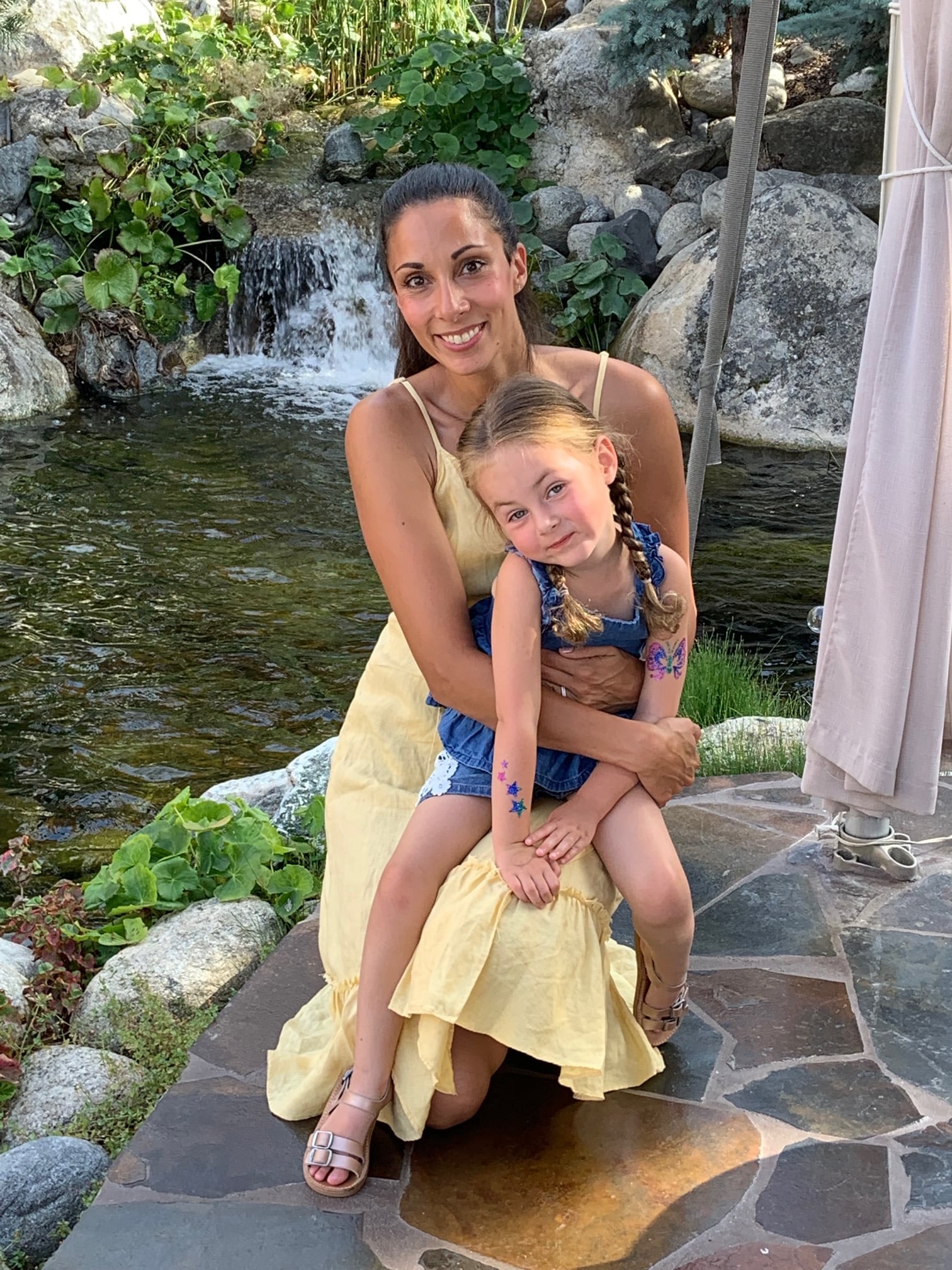Why I Had Kids After My Multiple Sclerosis Diagnosis
I Was Diagnosed With Multiple Sclerosis and Still Started a Family
Being a mom of two young kids is hard. But navigating motherhood while living with a chronic illness seems downright impossible at times. I'm a stay-at-home mom of a toddler and a 4-year-old, and I have multiple sclerosis (MS), an unpredictable and potentially disabling disease of the central nervous system. I juggle the highs and lows of parenting and the unpredictability of my disease. Some days I come out on top; some days I struggle to get out of bed. I have a variety of symptoms including chronic fatigue, numbness of the limbs, cognitive issues, temporary paralysis, headaches, and phantom pain throughout my body. Every day is a struggle.
I was diagnosed two years before deciding to start a family, and although it makes things more difficult, I don't regret my decision to have kids.
I was in my late 20s when a single phone call changed my life. I was newly engaged and planning a big move across the country with my fiancé. A few weeks prior, I'd noticed my fingertips felt numb when I typed on my keyboard at work. I thought it was strange but didn't give it much thought. Over the course of the next couple weeks, I began experiencing a pins and needles sensation that travelled up my arms and down my back. Then, the numbness spread to my face. My doctor suspected I had a pinched nerve but sent me in for an MRI scan to be on the safe side. The scan showed scar tissue on a number of spots on my brain and spine, otherwise known as lesions, and revealed that my body was attacking itself and causing irreversible damage to my central nervous system. That's when I was officially given a diagnosis of MS.
Initially, I was in shock. MS doesn't run in my family, and prior to the escalation in sudden symptoms, I had no reason to suspect something was wrong. I spent the next year researching the disease, adopting a healthy lifestyle, and spending time in and out of the hospital during relapses when the sudden paralysis would take place. It was a frightening first year, but my fiancé was with me every step of the way.
One of the toughest things about living with an unpredictable disease is the way it steals your self-confidence in your ability to perform basic tasks.
Despite the diagnosis, we followed through with our decision to move across the country. We relocated, bought a house, and got married. After a couple of years and getting a handle on daily life with MS, we began talking about starting a family. It was a big decision. Although we both wanted kids, we had to be realistic about my health and what the day to day would look like. One of the toughest things about living with an unpredictable disease is the way it steals your self-confidence in your ability to perform basic tasks. How would I navigate pregnancy while not being able to take any medication? Would I be able to care for a newborn? How would the stress of sleepless nights affect my symptoms? What happens if my arms go weak suddenly and I'm unable to lift my toddler and carry them around?
All of these questions needed to be addressed if we were seriously considering starting a family. Ultimately, my husband and I knew we wanted kids, and I was determined to not let this disease take away from my hopes and dreams for my life.
I wouldn't be able to predict how my body would respond to pregnancy or the challenges of motherhood, but I could put a plan in place to help ensure my kids would always be cared for even if I was unable to do so at any given time.
I started by doing as much research as possible into the disease and talked extensively with my doctors about how I could best take care of myself to stay as consistently healthy as possible. For me, this means annual checkups with my neurologist, eating healthy foods, exercising daily, and getting lots of rest.
I also built up a support system of friends and family who are willing to step in and help when I need it. I keep the lines of communication open, and I'm clear about when I need a hand. There are times when I'm feeling extra fatigued or my body aches and it's not realistic for me to chase my kids around the park. I keep a detailed, typed-out version of my kids' schedule on hand at all times, for when I have to call a babysitter or have a friend to come by unexpectedly. When my daughter is old enough, I will teach her how to use my phone to call a family member, a friend, or an emergency number if necessary. For now, I wear a smartwatch so I am always able to call someone if my symptoms flare up out of the blue.
I've learned over the past couple years to really listen to my body. If I'm overdoing it with playdates and activities, I slow down and we have a do-nothing day. The kids play in the backyard or in the playroom, and I rest.
I've chosen to not discuss my MS with my kids while they're young. Instead of focusing on being unwell, I do my best to prioritise my health and show my daughter and son that there's power in taking care of your body. I want my daughter to grow up knowing her mommy was strong and for my son to watch me persevere and adapt and smile. I hope to teach them that even though life can be unpredictable and challenging at times, it can also be an opportunity to prove that you can do hard things. There may be no cure for MS, but there's hope, and if there's one thing I can teach my kids in this life, it's to never give up on hope.









